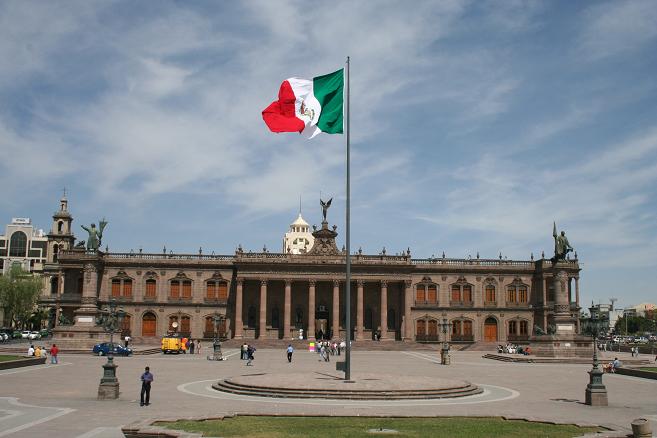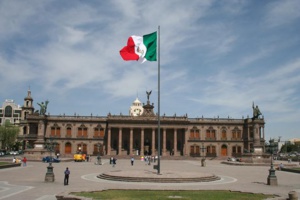In the first 10 months of the year, the budget has received just 654 billion pesos, equivalent of nearly $ 40 billion. The main reason was, of course, the fall in oil prices. The average price per barrel of Mexican crude oil amounted to $ 93.1in the period from January to October 2014. Then, in the same period this year, it fell to $ 47.2.
Obviously, producing oil at this price is not profitable in some places, so we see a fairly significant drop in oil production - by 7.8%.
Oil factor weighs on the course of the Mexican peso. Although to some extent the depreciation is associated with expectations of Fed rate hikes, falling oil plays a much greater role.
Since the beginning of the year, Mexican peso has lost almost 15% against the US dollar.
On the other hand, the Mexican budget feels support from other sectors of the economy. Thus, non-oil tax revenues rose by 28% this year and accounted to almost $ 119 billion in terms of dollars.
In general, Mexico goes in the right direction. Unlike many other countries rich in oil, the country reduced its dependence on oil revenues more than twice over the past three years.
Mexico's Finance Minister Luis Videgaray said that the process of avoiding dependence on oil is going more than successful.
Nevertheless, it is worth noting that this year's budget expenditures have been reduced by almost $ 8.5 billion, that is, about 0.7% of GDP. So the drop in oil prices will leave its mark.
Recall that Mexico ranks tenth in the world in terms of oil production.
Apparently, Mexico's economy shows some growth to the current reforms. Positive dynamics is preserved, and, according to the latest data, GDP growth is 0.8%.
At the same time, despite the fall in the exchange rate, inflation in Mexico continues to decline. Now the increase in consumer prices is only 2.48%.
In early December, Mexico will receive about $ 6.4 billion in the form of insurance, acquired last year from a pool of international banks to cover possible decline in oil prices.
Under the contract, the price of oil was fixed at $ 76.4 per barrel for 2015. The real price of a barrel of Mexican oil was almost $ 30 less. For the insurance, Mexico paid $ 773 million.
Obviously, producing oil at this price is not profitable in some places, so we see a fairly significant drop in oil production - by 7.8%.
Oil factor weighs on the course of the Mexican peso. Although to some extent the depreciation is associated with expectations of Fed rate hikes, falling oil plays a much greater role.
Since the beginning of the year, Mexican peso has lost almost 15% against the US dollar.
On the other hand, the Mexican budget feels support from other sectors of the economy. Thus, non-oil tax revenues rose by 28% this year and accounted to almost $ 119 billion in terms of dollars.
In general, Mexico goes in the right direction. Unlike many other countries rich in oil, the country reduced its dependence on oil revenues more than twice over the past three years.
Mexico's Finance Minister Luis Videgaray said that the process of avoiding dependence on oil is going more than successful.
Nevertheless, it is worth noting that this year's budget expenditures have been reduced by almost $ 8.5 billion, that is, about 0.7% of GDP. So the drop in oil prices will leave its mark.
Recall that Mexico ranks tenth in the world in terms of oil production.
Apparently, Mexico's economy shows some growth to the current reforms. Positive dynamics is preserved, and, according to the latest data, GDP growth is 0.8%.
At the same time, despite the fall in the exchange rate, inflation in Mexico continues to decline. Now the increase in consumer prices is only 2.48%.
In early December, Mexico will receive about $ 6.4 billion in the form of insurance, acquired last year from a pool of international banks to cover possible decline in oil prices.
Under the contract, the price of oil was fixed at $ 76.4 per barrel for 2015. The real price of a barrel of Mexican oil was almost $ 30 less. For the insurance, Mexico paid $ 773 million.






